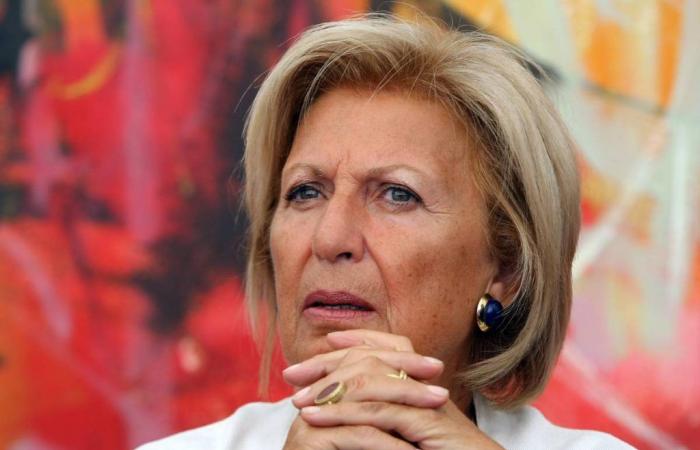Between June 23rd and 24th, fourteen provincial capitals will go to ballot to decree future mayors in those municipalities. In strict alphabetical order, they are: Avellino, Bari, Caltanissetta, Campobasso, Cremona, Florence, Lecce, Perugia, Potenza, Rovigo, Urbino, Verbania, Vercelli, Vibo Valentia. Of the other fifteen large cities at stake in this series of administrative elections that took place, ten ended up in a centre-left coalition (Bergamo, Cagliari, Cesena, Livorno, Modena, Pavia, Pesaro, Prato, Reggio Emilia, Sassari) while five they were already won in the first round by the centre-right alliance (Ascoli, Biella, Ferrara, Forlì, Pescara). The predictions on the eve of the event were substantially all respected, also considering the large presence of red strongholds between Emilia-Romagna, Tuscany and Marche. However, until just a few hours ago, there were at least three important municipalities remained in the balance on that very narrow border that divides immediate success at the polls from postponement to the “second half” between the two most voted candidates. And now you have just a week left to complete the electoral campaign for the decisive direct clash.
The incredible length of times in Lecce
The most sensational case is that of Lecce. The complex story of the electoral counting in Salento has moved towards a first clarification, but we cannot yet speak of a “resolution of the case”, since the risk of appeals and recounts it’s around the corner. However, Eligendo, the elections portal of the Ministry of the Interior, uploaded the results of 101 of the 102 sections in which the people of Lecce voted. Only one is missing from the appeal, after the inconsistencies that occurred in 4 sections on the night of June 10th. Adriana Poli Bortone (centre-right) reaches 25,703 preferences, or 49.87% of valid votes: that is, around 70 units below the threshold that would have guaranteed her direct victory. It is almost impossible that the last section can give her victory in the first round. Its lists collect 25,052 votes equal to 50.23% of the preferences. Carlo Salvemini, the outgoing mayor, is 3 percentage points behind the senator. 24,126 votes were given to him by the people of Lecce, 46.81% of the preferences. His lists reach 23,841 votes, 47.80% of the ballots counted. This being the case, we are heading towards the run-off with the specter of being reviled “lame duck”, since the lists linked to Poli Bortone would have exceeded 50% of the votes. Then the disputes could be opened: appeals and recounts to verify if on a more careful reading the numbers are “slightly” different, where that adverb means real electoral destinies.
The portal is wrong to assign separate votes to Campobasso
The situation is no less Kafkaesque Campobasso. Here Aldo De Benedittis he went to sleep peacefully on Monday night with the certainty that he had been chosen by the citizens as the new mayor of the capital of Molise; and instead waking up a few days later was rather bitter. A recount of the votes from the municipal elections on Saturday 8 and Sunday 9 June has established that he will go to the run-off in this city. By mistake, the centre-right mayoral candidate had already been declared elected with 52% of the votes: it’s a shame that Eligendo had not, however, also taken into account the so-called split votes, i.e. those given to a candidate for the city council who was not included in the lists of the chosen mayoral candidate. After the new ballot, De Benedittis’s consensus fell to 48.3%, thus bringing him below the threshold necessary to triumph in the first round in municipalities with more than 15 thousand inhabitants. The former regional councilor will therefore be forced to face the run-off, which will be held on 23 and 24 June against Marialuisa Forte, a school director supported by the center-left who obtained 31.8 percent of the votes. Campobasso is currently governed by the 5 Star Movement, when Roberto Gravina was elected in 2019, who however resigned in 2023 after running for president of the region (losing but still being elected to the regional council). Paola Felice took over from him.
Thrilling municipal races in Perugia and Rovigo
Suspense a little shorter a Perugia, but certainly here too there was a strong palpitation. On Wednesday morning the results of the Perugia municipal elections were made official on the portal of the Ministry of the Interior, but for a few long hours Vittoria Ferdinandiof the centre-left, saw the 50% bar being concretely exceeded, but in the end there was nothing to be done: it obtained 49.01% of the votes against 48.29% of the centre-right represented by Margherita Scoccia. In the end there were 598 votes that divided them, with the first round being polarized on the two mayoral candidates. The ballot also narrowly arrived in Rovigo, with a procedure that also went very slowly due to 600 contested ballots and ended only a few hours ago: in the final count the 581 void ballots, 283 blank ballots and 10 claimed ballots stand out. The fact remains that, with the left divided, Valeria Citizensupported by Fratelli d’Italia, Forza Italia, Lega and Azione achieved 49.11% (12,117 votes).
The outgoing and resigning mayor Edoardo Gaffeo, supported by the 5 Star Movement, obtained 6,933 votes equal to 28.09%. Will Palmiro Tosini of the Democratic Party, who was left out of the race, contribute to overturning the result in ten days’ time?



